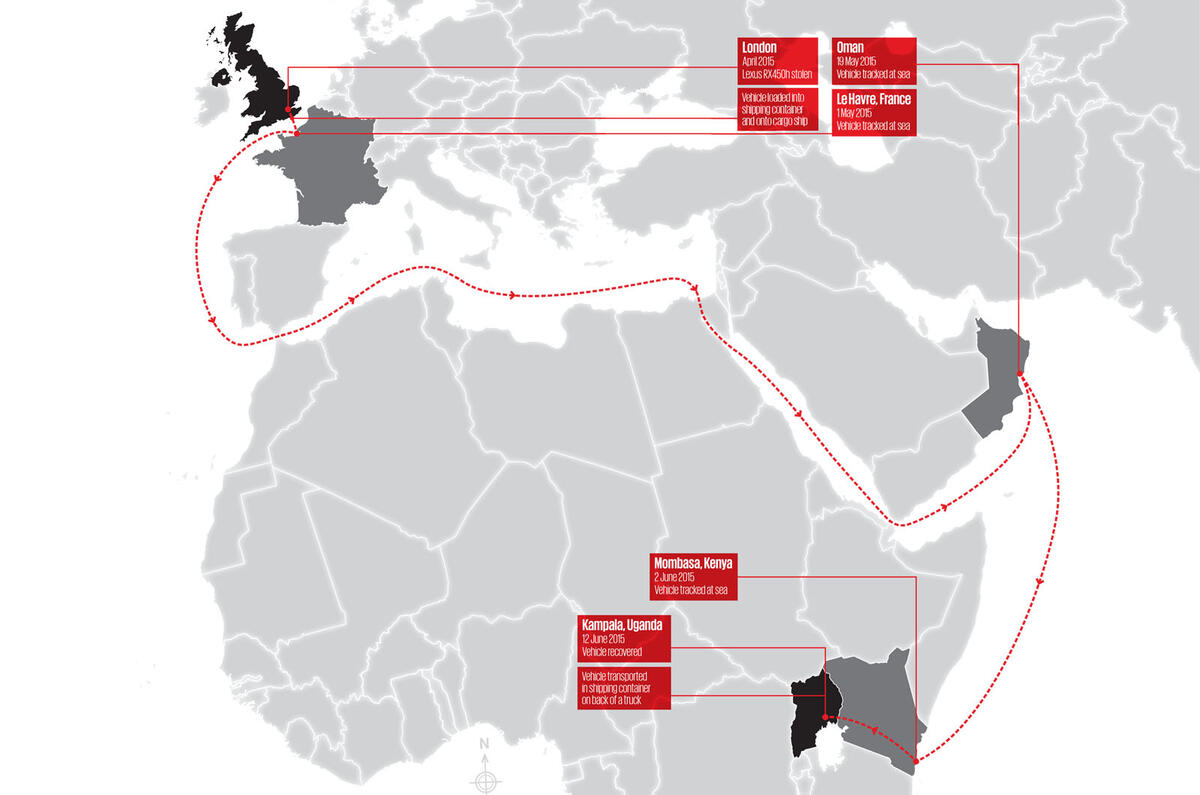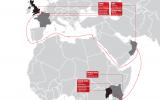On 1 May, Neil Thomas, director of investigative services for APU, a company that recovers stolen vehicles, received an alert from a tracking device fitted to a British-registered Lexus RX450h that placed it in Le Havre, France.
The car, the property of Accident Exchange, APU’s sister company, which arranges loan cars for drivers involved in accidents that were not their fault, shouldn’t have been there because it wasn’t insured for international travel.
APU specialises in looking after car fleets and carrying out investigations relating to accidents and motor insurance fraud. It monitors the movements of cars with a total value of more than £60 million via the use of tracking devices and its own bespoke Asset Recovery Unit.
When the Lexus alert occurred, APU checked out the story of the client to whom the vehicle had been loaned.
Thomas says: “He’d contacted Accident Exchange and explained that he was a non-fault driver who had been in an accident with a dustbin lorry in London. He had its registration, the driver’s name and all of the details for what appeared to be a credible accident.
“We dealt with it as a low-level threat because there might have been a legitimate explanation, but when we investigated a bit further we couldn’t get hold of the client. He had gone off the radar.”
When the tracking system pinpointed that the Lexus was now at sea in a shipping container on a cargo ship, Thomas says “it raised concerns” that the client’s identity and accident were works of fiction.
APU gathered a dossier of evidence, tracking the shipping container to Oman. “We could say with certainty that it was on a particular boat so, at that stage, the Metropolitan Police reported it as stolen,” says Thomas.
It was an important step because it meant the Lexus was now in the crime system. APU has an information-sharing agreement with NaVCIS, the National Vehicle Crime Intelligence Service, which in turn notified the National Crime Agency (NCA), an international body that tackles threats facing the UK from serious organised crime.
Paul Stanfield, the NCA’s regional manager for east and southern Africa, says: “In the first three months of 2015, vehicles worth a total of about £100m were stolen in the UK. I was told that Uganda, which is in my management zone, is one of the centres of the market where cars were brought in from the UK and sold on.”


























Add your comment